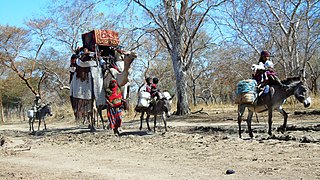 W
WThe population of Chad has numerous ethnic groups. SIL Ethnologue reports more than 130 distinct languages spoken in Chad.
 W
WThe Bilala are a Muslim people that live around Lake Fitri, in the Batha Prefecture, in central Chad. The last Chadian census in 1993 stated that they numbered 136,629 people. Their language, Naba, is divided in four dialects and is a part of the Central Sudanic language family; it is shared by two of their neighbours, the Kuka and the Medogo. These three peoples are collectively known as Lisi and are believed to be descendants of main ethnic groups of the Sultanate of Yao.
 W
WThe Toubou, or Tubu, are a Saharan ethnic group inhabiting northern Chad, southern Libya, northeastern Niger and northwestern Sudan. They live either as herders and nomads or as farmers near oases. Their society is clan-based, with each clan having certain oases, pastures and wells.
 W
WThe Fula, Fulani, or Fulɓe people are one of the largest ethnic groups in the Sahel and West Africa, widely dispersed across the region. Inhabiting many countries, they live mainly in West Africa and northern parts of Central Africa but also in South Sudan, Darfur, Eritrea, and regions near the Red Sea coast. The approximate number of Fula people is unknown due to clashing definitions regarding Fula ethnicity; various estimates put the figure between 55 and 69.2 million worldwide.
 W
WThe Toubou, or Tubu, are a Saharan ethnic group inhabiting northern Chad, southern Libya, northeastern Niger and northwestern Sudan. They live either as herders and nomads or as farmers near oases. Their society is clan-based, with each clan having certain oases, pastures and wells.
 W
WThe Hausa are the largest ethnic group in sub-Saharan Africa with the second most spoken language after Arabic in the Afro-Asiatic language family. The Hausa are a diverse but culturally homogeneous people based primarily in the Sahelian and the sparse savanna areas of southern Niger and northern Nigeria respectively, numbering over 80 million people with significant indigenized populations in Benin, Cameroon, Ivory Coast, Chad, Sudan, Central African Republic, Republic of the Congo, Togo, Ghana, Eritrea, Equatorial Guinea, Gabon, Senegal and the Gambia.
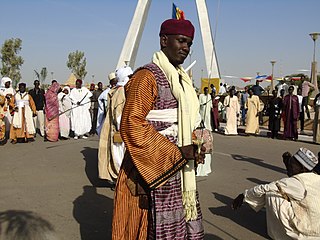 W
WThe Kanembu are an ethnic group of Chad, generally considered the modern descendants of the Kanem-Bornu Empire. The Kanembu number an estimated 890,000 people, located primarily in Chad's Lac Prefecture but also in Chari-Baguirmi and Kanem prefectures. They speak the Kanembu language, which the Kanuri language is derived from, with many speaking Arabic as a second language.
 W
WThe Kanuri people are an African ethnic group living largely in the lands of the former Kanem and Bornu Empires in Niger, Nigeria, Sudan, Libya and Cameroon. Those generally termed Kanuri include several subgroups and dialect groups, some of whom identify as distinct from the Kanuri. Most trace their origins to ruling lineages of the medieval Kanem-Bornu Empire, and its client states or provinces. In contrast to the neighboring Toubou or Zaghawa pastoralists, Kanuri groups have traditionally been sedentary, engaging in farming, fishing the Chad Basin, and engaged in trade and salt processing.
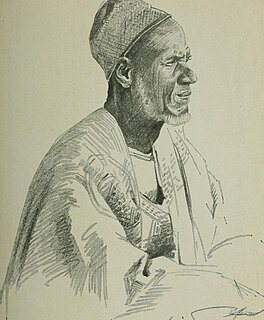 W
WThe Mandara people, also known as Wandala or Mandwara, are a Central African Muslim ethnic group found in north Cameroon northeastern Nigeria, and southeastern Chad. They speak the Wandala language, which belongs to the Chadic branch of Afro-Asiatic languages found in northeastern Africa.
 W
WMasa people, also called Masana, Banana, or Yagoua are a Chadic ethnic group in Cameroon and Chad.
 W
WThe Musgum or Mulwi are a Chadic ethnic group in Cameroon and Chad. They speak Musgu, a Chadic language, which had 61,500 speakers in Cameroon in 1982 and 24,408 speakers in Chad in 1993. The Musgum call themselves Mulwi.
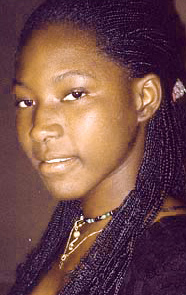 W
WThe Sara people are a Central Sudanic ethnic group native to southern Chad, the northwestern areas of the Central African Republic, and the southern border of North Sudan. They speak the Sara languages which are a part of the Central Sudanic language family. They are also the largest ethnic group in Chad.
 W
WThe Toubou, or Tubu, are a Saharan ethnic group inhabiting northern Chad, southern Libya, northeastern Niger and northwestern Sudan. They live either as herders and nomads or as farmers near oases. Their society is clan-based, with each clan having certain oases, pastures and wells.
 W
WThe Toubou, or Tubu, are a Saharan ethnic group inhabiting northern Chad, southern Libya, northeastern Niger and northwestern Sudan. They live either as herders and nomads or as farmers near oases. Their society is clan-based, with each clan having certain oases, pastures and wells.
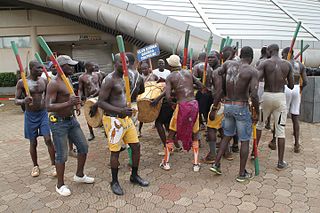 W
WThe Tupuri are an ethnic group in Cameroon and Chad. They speak a language called Tupuri, which had 125,000 speakers in Cameroon at an unspecified date and 90,785 speakers in Chad in 1993. There were 215,466 of them in Chad in 2009.